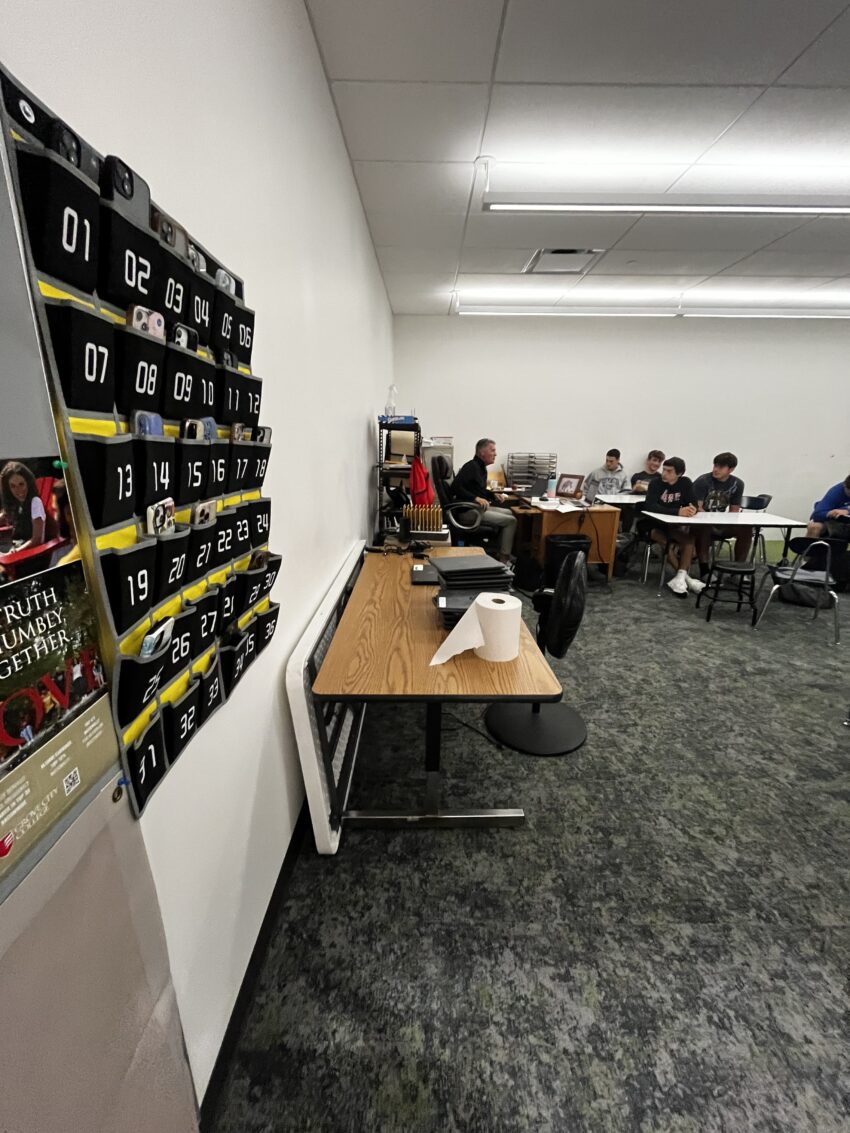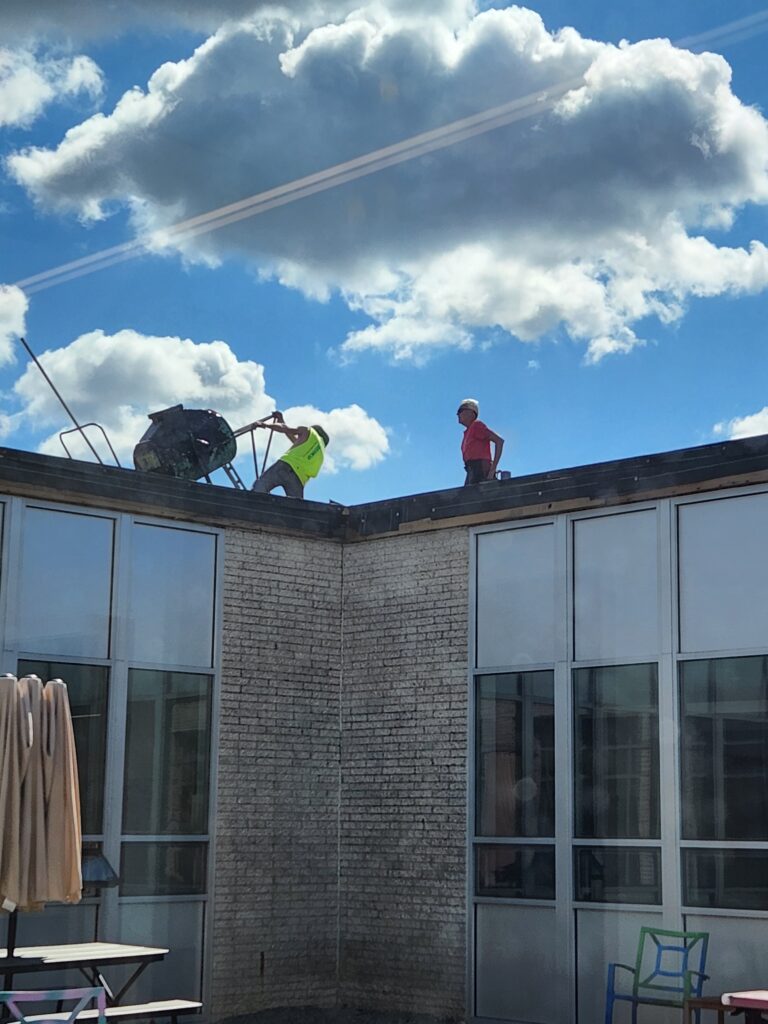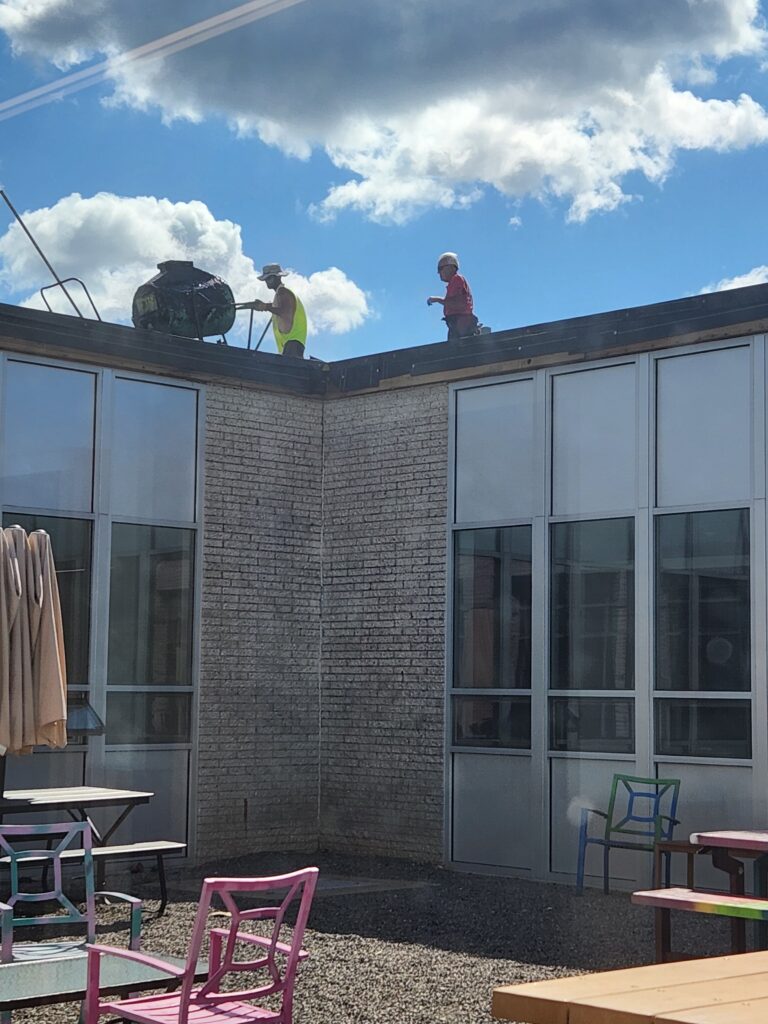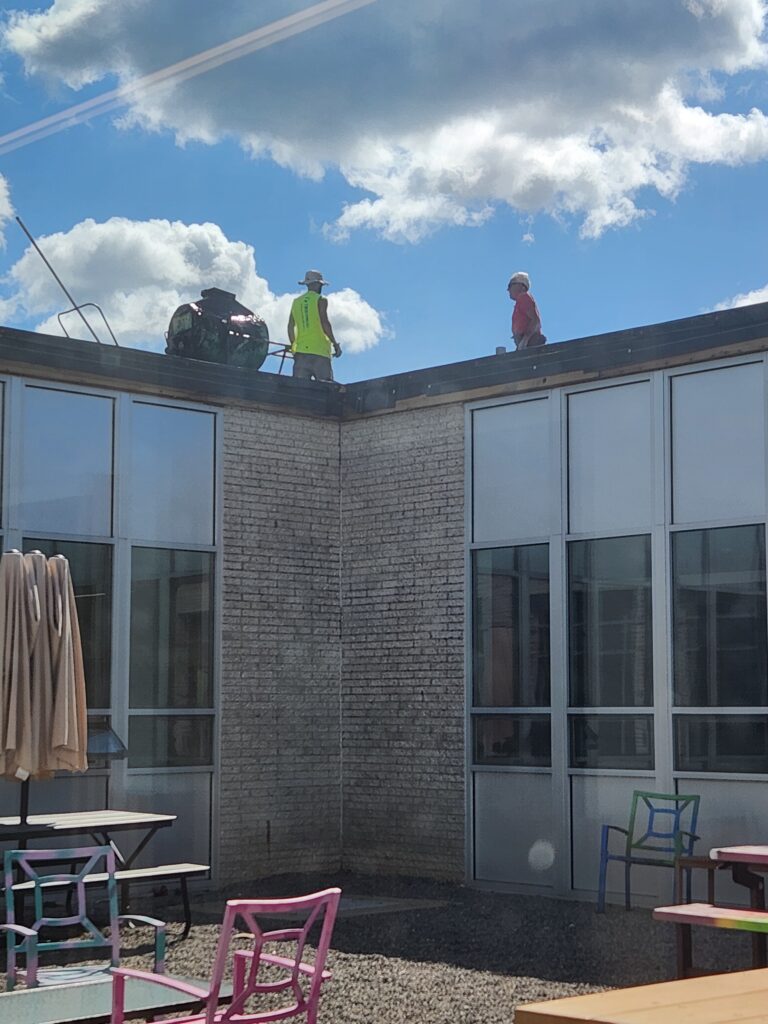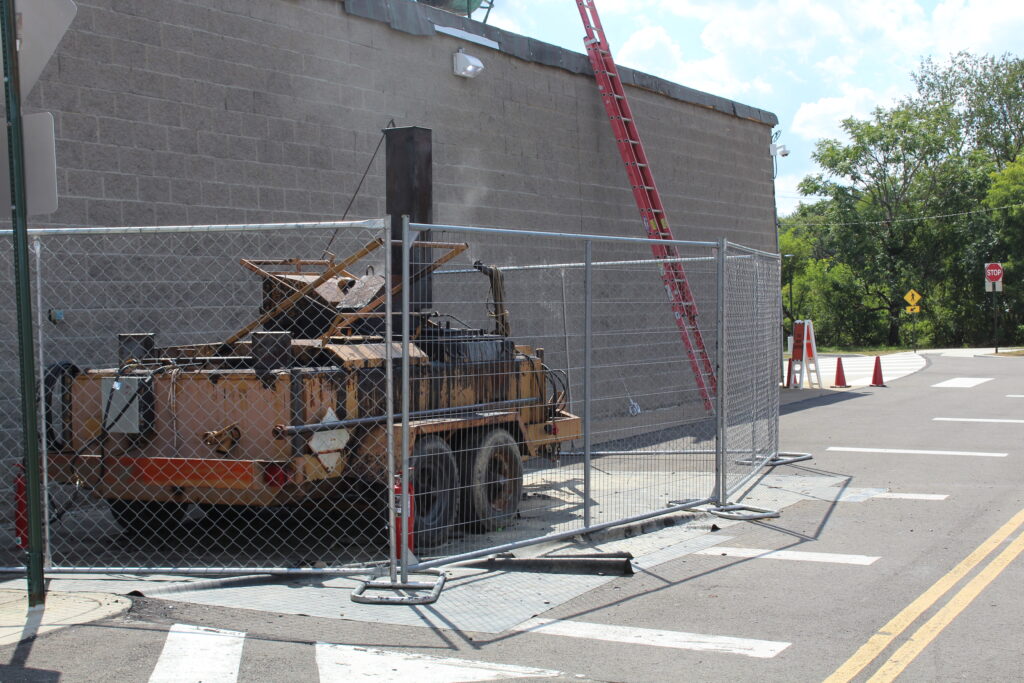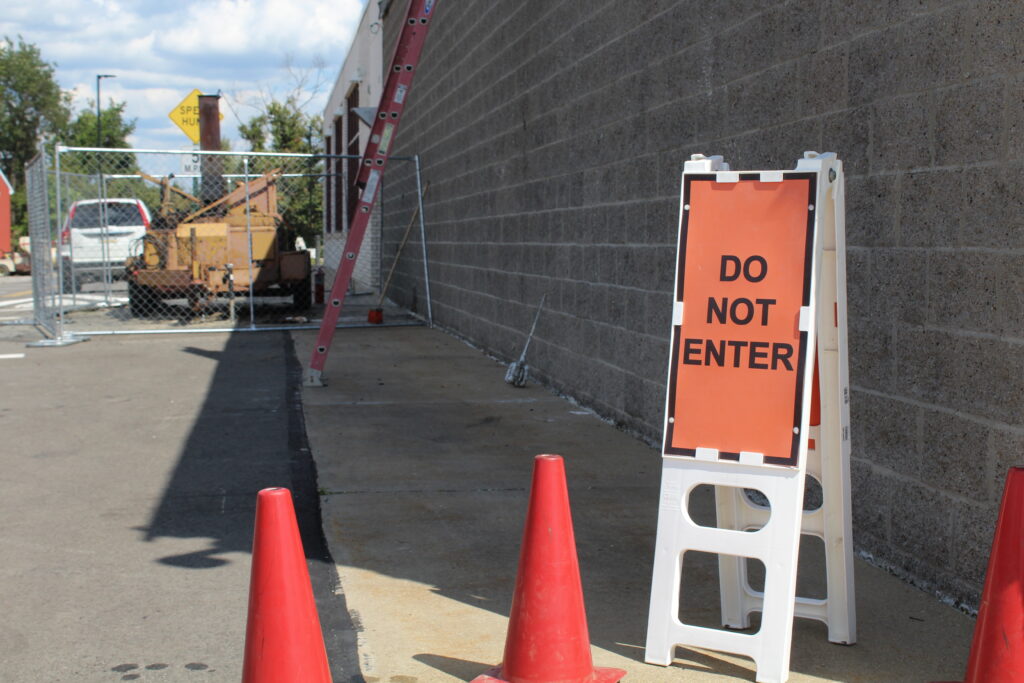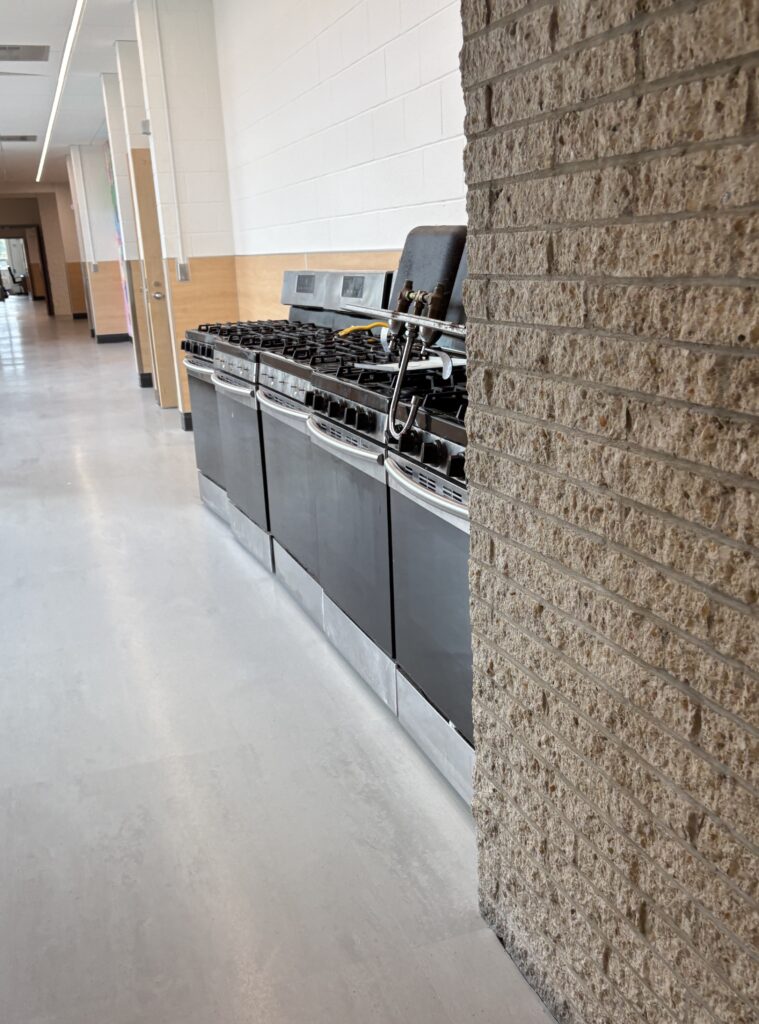The first days of the 2025–2026 school year offered one significant change in the classrooms across the building: the new “No Cell, Bell-to-Bell” policy.
The rule requires students to keep their phones off and stored during class time—from the morning bell until dismissal. The only exceptions are lunch and LEAD and Open MODS. District administrators have three goals: reduce distractions, boost engagement, and build stronger face-to-face connections.
For many freshmen, the change feels less like a shock and more like déjà vu.
“I don’t see a difference because it was basically like this in middle school,” said Lily Glidden (9th grade). Classmate Charlotte Klingenberg (9th) agreed: “I have always left my phone away, so it doesn’t really change anything for me personally.”
Others, however, doubt the policy’s effectiveness.
“I think it is redundant because the people who don’t use their phones continue not to, and the people who do use their phones in class don’t care enough to listen,” said Matilda Mackillop (9th).
Some freshmen are more neutral. Anna Heinnickel (9th) said, “It’s not that bad, about the same as last year so far,” while Jocelyn Grande (9th) found it “a little strict but a lot different from last year.” Zoya Carlone (9th) also saw both sides: “It’s helpful because it keeps people from being distracted, but it’s also annoying because you could need it for something important.” Reagan Hamilton (9th) shrugged: “It’s honestly not horrible… Plus, I don’t really use my phone.”
Still, frustrations exist. Lailah Laird (9th) declared, “I think the phone policy is the dumbest thing I’ve ever heard happen in school.”
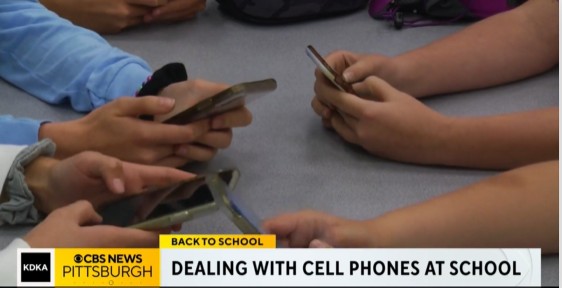
Avonworth joined a number of schools county and nationwide at the start of the 2025-2026 school year with new rules or a cell phone ban during the school day.
Older students voiced a wider range of reactions.
“I understand that they had to take phones away because it was a distraction in class,” said CJ Calabro (10th). “I think that it should be allowed until the class has proven that they can’t handle it.”
Others were harsher. Tyler Potts (10th) called it “kinda dumb considering we are in the era of technology where everything is going to be online in the future.”
Some upperclassmen, however, welcomed the rule. “I feel like the phone policy is actually quite nice because it keeps me focused and off my phone. I was on my phone a lot before,” said Catheryn Allen (11th).
But for Izzy Schuster (12th), the rule was a dealbreaker: “I do not like it. I think it’s stupid, especially because I cannot listen to music.” Ella Saxon (11th) echoed that frustration: “I feel like we should be able to just leave it on our desk.”
Safety concerns also came up. Karalyn Kelleher (11th) added, “What if there is an emergency?”
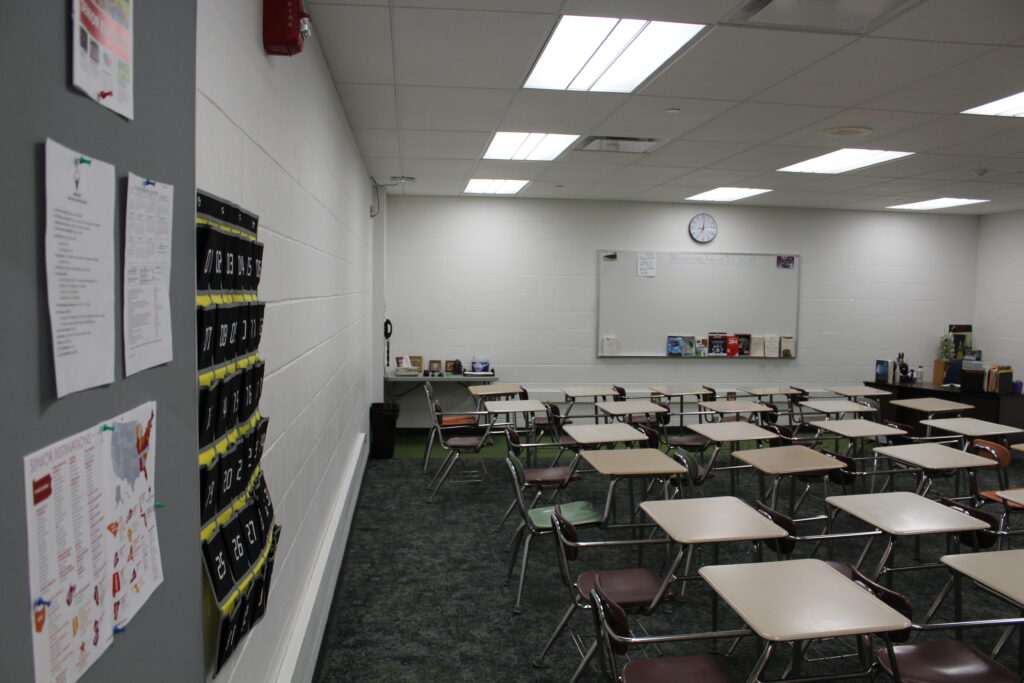
Some students see the new rule as a helpful reset. “I like it because it keeps me off my phone and I am a little bit addicted,” admitted Juliana Geist (11th). Others, like Holden Klinedinst (12th), were unfazed: “It’s ok, I just kept my phone in my bag anyway.”
Several students suggested more compromise. Zach Kracklauer (12th) said, “We can have [phones] in non-instructional periods, like LEAD or open mods where it doesn’t really matter. It’s actually a pretty good compromise.” Jonay Palmer (11th) agreed: “I think it’s okay because we have the opportunity to use them during open mods and lunch.”
But Alex Lawrence (12th) questioned the bigger picture: “We’re 100 percent dependent on phones since they’re like mini computers now. If we use our phones with AI in a smart and disciplined way, then it’ll be fine.”

Despite the controversy, students described the first week as calmer than expected. Teachers eased into lessons with light workloads and community-building activities, helping students adjust. Socially, some even said connections improved. “I think [connections] are better,” said Jonay Palmer (11th). “Just a little less texting, but that can be good.”
Whether the “No Cell, Bell-to-Bell” policy becomes a lasting shift or just a temporary experiment, it has already defined the start of Avonworth’s school year. As Ruby MacKenzie (11th) put it: “I understand why they are doing it, but they are going to get backlash from students.”
Another distraction to the students is the new smell of fresh tar throughout the day. The students must sit through classes with the strong stench impeding their chance to focus.
Planned construction the last two years included consistent communication from the district about changes in entrances, plans for renovations, and ways to maneuver their way around different construction sites. The continued work on the roof, which started in the summer, brought surprise and difficulty to many students.
As the day progresses, the students begin to notice changes in their surrounding environment. Knocking is prevalent, with the noise coming from the roof at different times throughout a class. The odors through the new ventilation system prompted some teachers to take their classes outside, while others try their best to lead classes through the heavy, noxious smell of fresh tar hovering through many classrooms.
Beyond the roof, the start of the school year was very close to construction free, a significant change from the last two years of heavy remodeling around the campus. A small collection of old stoves in a hallway was about the only noticeable leftover maintenance or construction-related scene in the high school.
Reporting and Photography by Journalism 1 students: Alexandra Eberhardt, Savannah Hoffman, Luke Janicki, Charlotte Klingenberg, Dylan Puck, Kara Yackoski, Melody Zheng, Grace Caulkins, Lila Caulkins, Cor Hudson, Trinity Klicker, Lyra Klinedinst, Beatrice Laurenson, Aiden Lawrence, Phoebe MacKillop, Megan Obersteiner, Katelyn Paulet, Sara Stoeckle, Ana Da Silva Sousa, Jose Gomez Santiz, Julian Megia Argel, Jada Taylor
